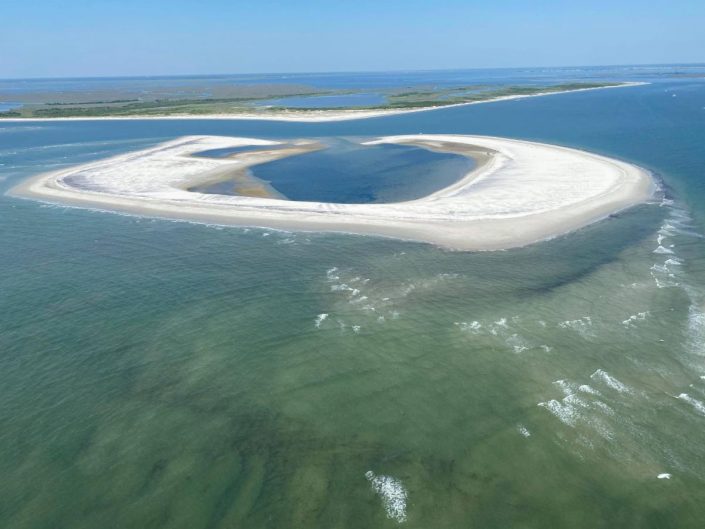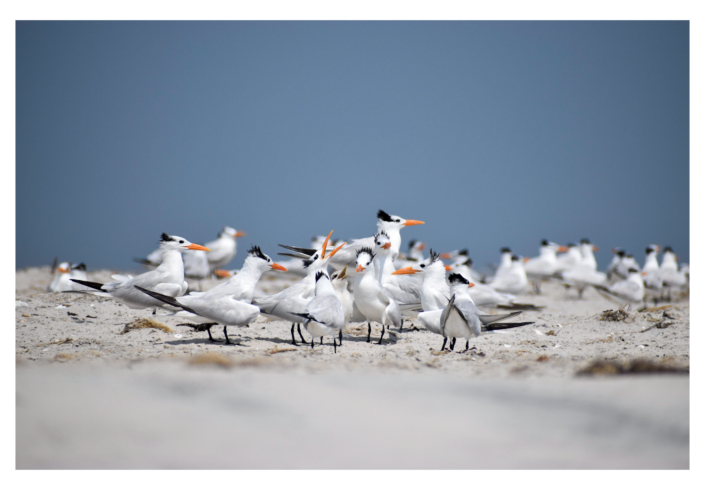Horseshoe Island- A Haven for Beach Nesting Birds
by Todd Pover, Senior Wildlife Biologist
Horseshoe Island, located just offshore of Little Beach on the southern edge of the Little Egg Inlet, is teeming with wildlife again this year. Last year, under a five-year Management Rights Agreement secured from the state’s Tidelands Resource Council, the site was closed to the public from March 1- September 30 to benefit wildlife, in particular endangered and at-risk beach nesting birds and migratory shorebirds. The seasonal public closure of the island and its surrounding tidal areas is in place again this season.

Courtesy of New Jersey Fish and Wildlife
Although the elevation of the island has only been high enough to support nesting birds fora few years, it has quickly become one of New Jersey’s most important sites for shorebirds, especially colonial nesters. In 2022 it hosted the state’s largest and most successful black skimmer colony, as well as some of the state’s largest tern colonies. Royal terns nested on the island, making it the northernmost colony in the entire hemisphere. Ten pairs of American oystercatchers nested on Horseshoe last year; those pairs fledged one chick per pair, more than three times the average statewide rate among monitored pairs and double the recovery goal for the species.

Courtesy of Emmy Casper.
One of the most appealing features of the island for nesting shorebirds is the lack of mammalian predators, it is one of the few locations in the entire state that can make that claim. Implementing a public closure minimizes human disturbance of the birds, giving them the best chance to achieve high reproductive success.
Field biologists from New Jersey Fish and Wildlife and Conserve Wildlife Foundation of New Jersey (acting on behalf of the Edwin B. Forsythe National Wildlife Refuge) will be monitoring and managing the site again this year. Already this year they have detected a slight increase in American oystercatchers nesting on the island. Other colonial nesting birds are just arriving and settling in. Migratory shorebird use is at its spring peak in New Jersey at the moment, the island provides a safe haven for them, as well.
Copies of the Horseshoe Island Management Plan and Management Rights Agreement, as well as a report about the 2022 season can be found here. https://dep.nj.gov/njfw/conservation/horseshoe-island/
Discover more from Conserve Wildlife Foundation of NJ
Subscribe to get the latest posts sent to your email.
Leave a Comment
Is’n this a long lost relative of Tucker’s Island emerging from the deep?
Comments are closed.